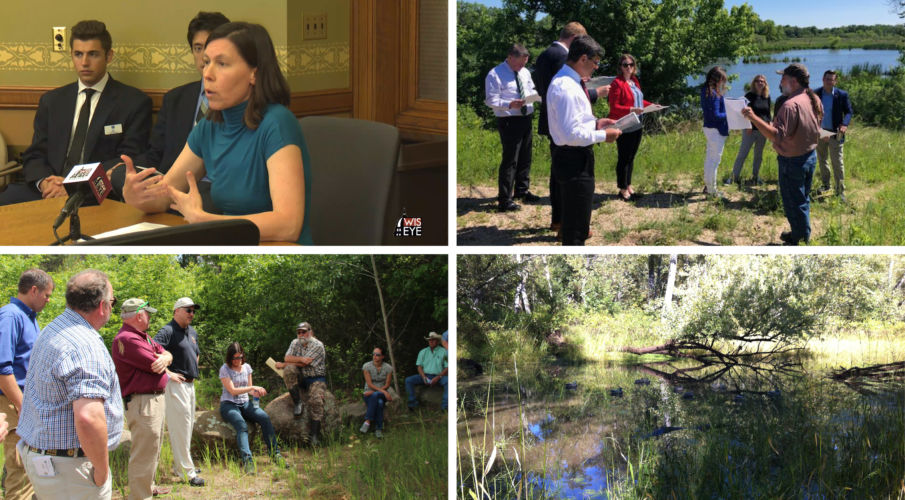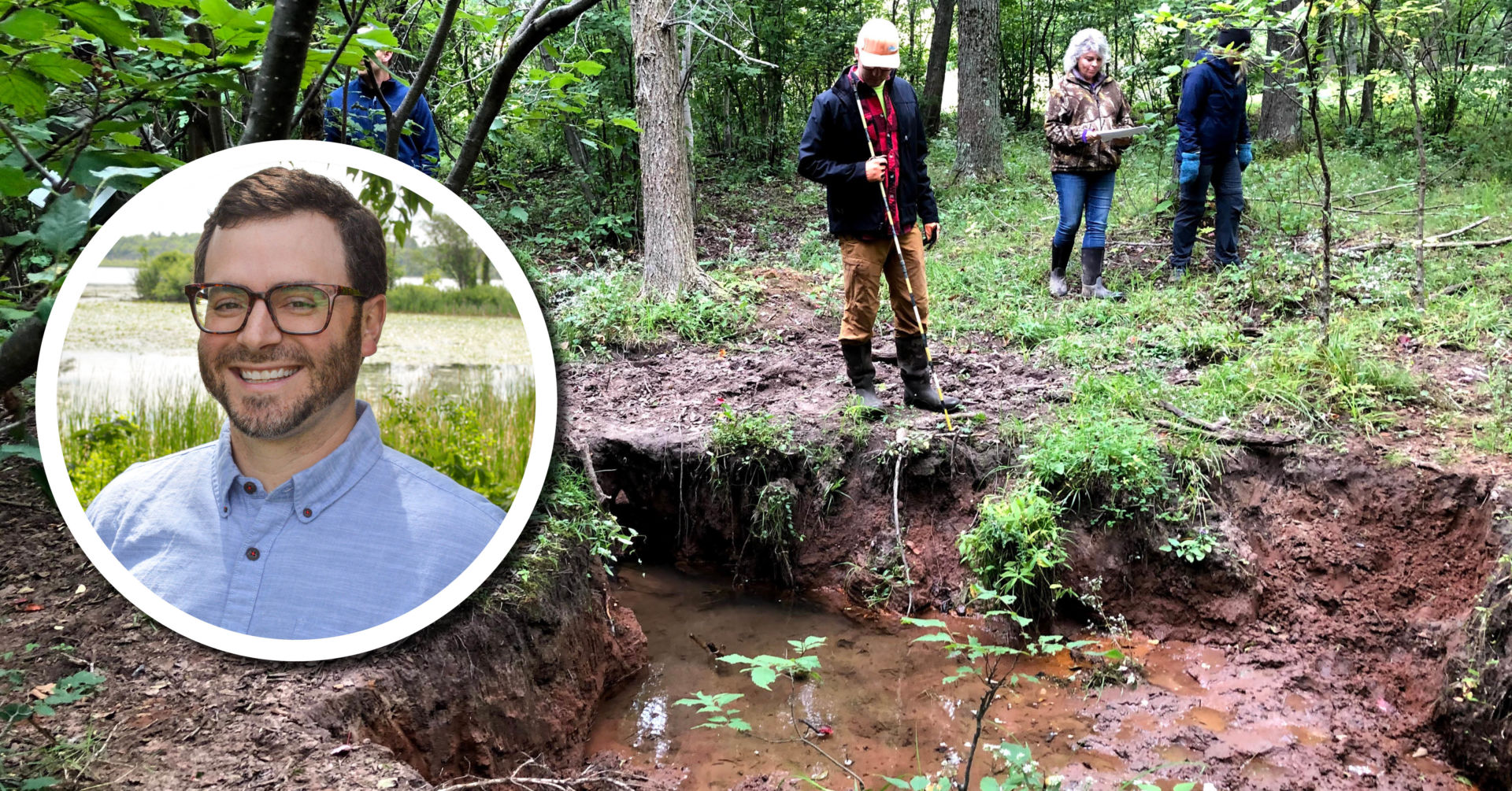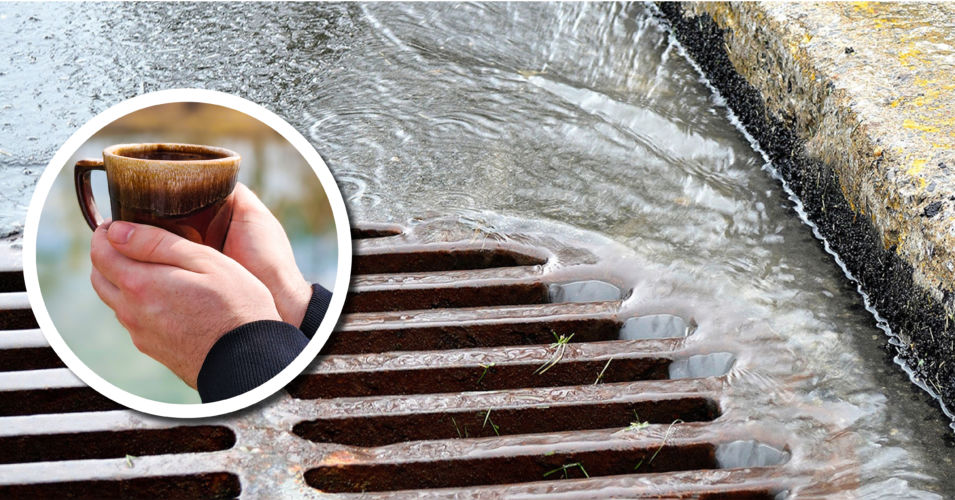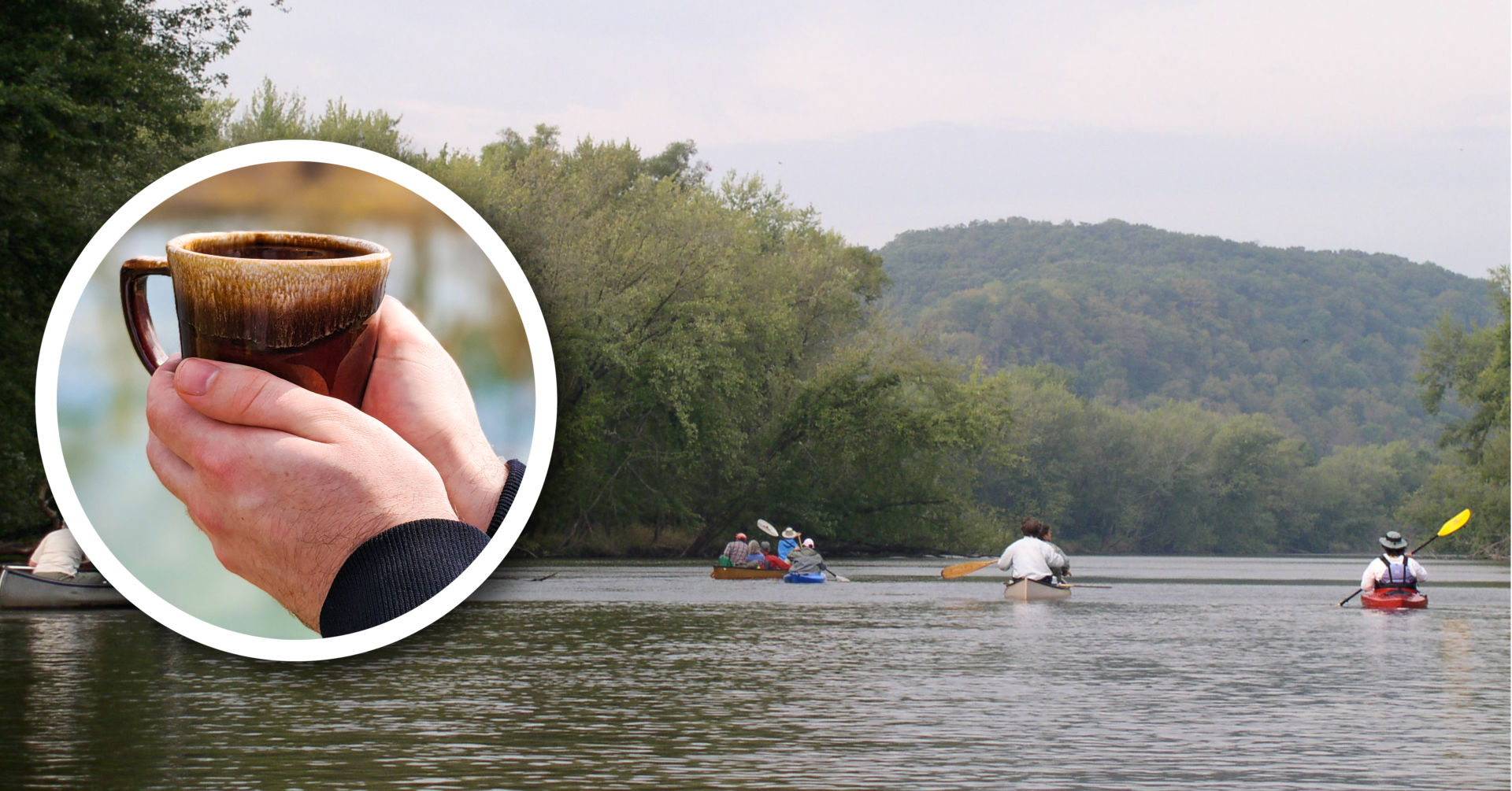With 50% of Wisconsin’s wetlands already gone, an important piece of our work is helping to protect the wetlands we have left. But for lasting wetland conservation, where Wisconsin’s wetlands are healthy, plentiful, and support the ecological and societal needs of our communities, we also need to put healthy wetlands back on the landscape. To accomplish all of this, we employ a variety of strategies.
In our program work, Wisconsin Wetlands Association (WWA) operates on many levels to achieve our goal. We continuously endeavor to educate key players from many disciplines and communities about the value of wetlands, fostering engagement in wetland conservation and restoration. We also provide these key players with the support and information they need to improve wetland policies and practices to put wetlands back on the landscape while sharing the data and lessons learned in the process to encourage others to follow suit. Working like this, on many levels at once, is what will make lasting wetland conservation possible.
Here’s what these combined efforts look like over the course of a two-week period in June:
Promoting wetlands as solutions to flooding
On June 12, WWA’s Policy Programs Director, Erin O’Brien, testified at a Senate Committee on Natural Resources and Energy hearing for a bill we helped conceive. The proposal, SB252, would fund restoration projects in the Lake Superior Basin that will demonstrate the benefits of restoring wetlands to reduce floods. The committee approved the proposal with unanimous bi-partisan support, moving one-step closer to enactment.
Educating legislators on how wetlands manage runoff
WWA’s Executive Director, Tracy Hames, and Erin O’Brien hosted a field-based learning experience on June 13 for the Speaker’s Water Quality Task Force near La Crosse. On the tour, we shared how wetlands help manage runoff and reduce erosion and pollution. Our presentation was met with enthusiasm and we will be following up with policy recommendations to the task force soon.
Elevating the status of a Wisconsin Wetland Gem®
Throughout these two weeks, WWA’s Outreach Programs Director, Katie Beilfuss, met with seven legislators in the state Capitol to brief them on the pending nomination of the wetlands of the Lower Wisconsin River, a Wetland Gem®, as a Wetland of International Importance through the Ramsar Convention. While we were at it, we also took the opportunity to show the same legislators videos from our American Wetlands Month celebration to illustrate how wetlands such as those associated with the Lower Wisconsin River manage water and benefit communities.
Exploring science-based collaborations
On June 19, WWA’s Tracy Hames and Erin O’Brien took the UW Discovery Farms Steering Committee on a tour of wetland and floodplain restoration sites of the Little Plover River Watershed Enhancement Project to highlight examples of wetlands as solutions to a groundwater management problem. We also discussed how the lessons learned through that project could be applied to improve on-farm and watershed-scale water management in other areas of the state.
Doing many things simultaneously is often needed to effect real change for wetlands. We’re continuously working to advance science, increase understanding and engagement, support action, influence policies, and export lessons-learned in place-based projects for broader replication. Your support, and the support of many more across the state, is integral to this strategy, and ultimately to realizing our vision of a landscape where Wisconsin’s wetlands are healthy and plentiful, supporting communities’ ecological and societal needs.
Related Content
Wetland Coffee Break: Piloting Natural Flood Management in the Lake Superior basin
Wetland Coffee Break: Opportunities to accelerate watershed-scale runoff management: A law and policy perspective
Wetland Coffee Break: A social history of the Lower Wisconsin Riverway, a Wetland of International Importance




